| Columns Retired Columns & Blogs |
Read the story about the fire at the link:
http://www.nytimes.com/2019/06/11/magazine/universal-fire-master-recordings.html
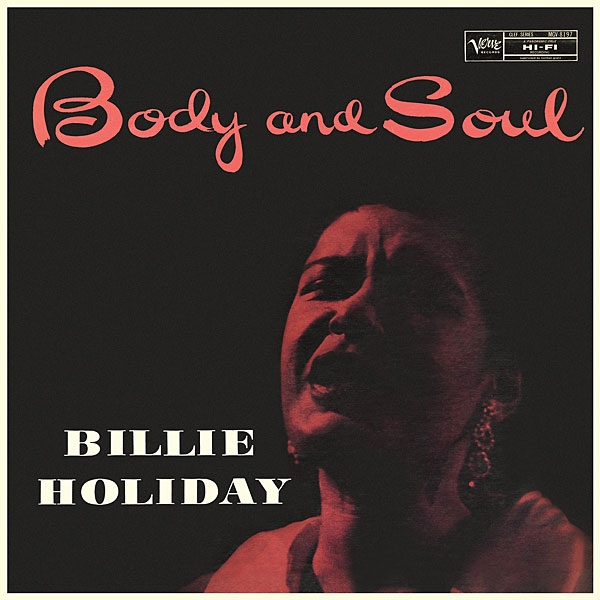
Now the majors have stepped up. Blue Note (Universal Music Group) currently offers at least five different vinyl-reissue series, Columbia (Sony/Legacy) seems intent on reissuing Miles Davis's catalog into the next millennium, and Craft Recordings (Concord) has released fabulous box sets by Thelonious Monk and Coltrane. Earlier this year, Verve Records (UMG) announced Vital Vinyl, reissuing titles from the hallowed Verve and Impulse! catalogs.
Pressed on 180gm vinyl at GZ Vinyl in the Czech Republic, the 40 LPs that comprise the Vital Vinyl series were cut from 24-bit/192kHz files mastered by UMG's Kevin Reeves from the original session tapes. Reeves' mastering chain includes a vintage Studer A820 tape machine and he monitors his work on Bowers & Wilkins 802 Diamond loudspeakers driven by Classé amps. Lacquers were cut by Ian Selchik and Kevin Bartley using Capitol's Neumann VMS70 cutting lathes.
Vital Vinyl's first wave of LP reissues, released on February 22, include Billie Holiday's Songs for Distingué Lovers and Body and Soul, Coleman Hawkins Encounters Ben Webster, Jimmy Smith's The Cat, and Stan Getz & Bill Evans. Subsequent releases in the Vital Vinyl series, all of which will be available by the time you read this, include Roy Haynes's Out of the Afternoon, Oliver Nelson's The Blues and the Abstract Truth, Sonny Rollins's On Impulse!, and Charles Mingus's The Black Saint and the Sinner Lady, all priced between $17.67–$29.99 per disc.
All of the six reissues I received were dead quiet except one (The Cat); all were free from warps and pre-echo, and most were supplied with high-density polyethylene-lined paper sleeves. Some standouts:
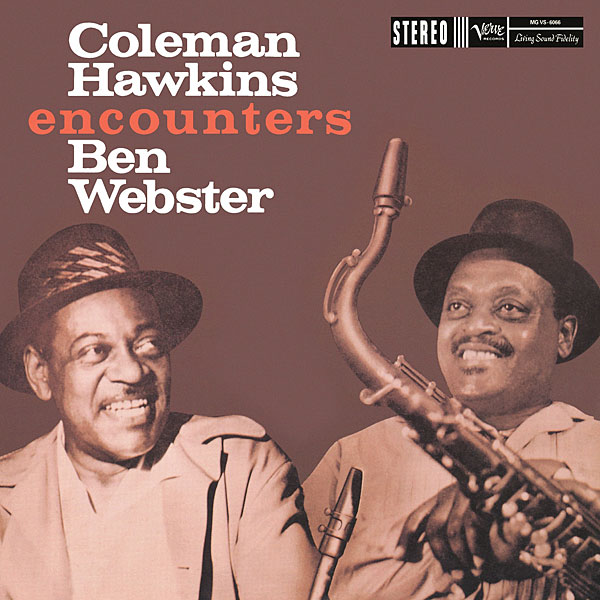
Coleman Hawkins Encounters Ben Webster
This 1957 date finds the two tenor masters chilling in a set of relaxed swing. Here's one thing this record shares with all the other Verve Vitals: absolute clarity. Clearer than the originals? Possibly. Apparently an experienced mastering engineer can exploit the advantages of digital masters while ameliorating their disadvantages. Throughout this stereo set of mostly comfy standards, the tenor giants' horns are front and center with breathiness, creaminess, and air to the fore and a roomy low end below.
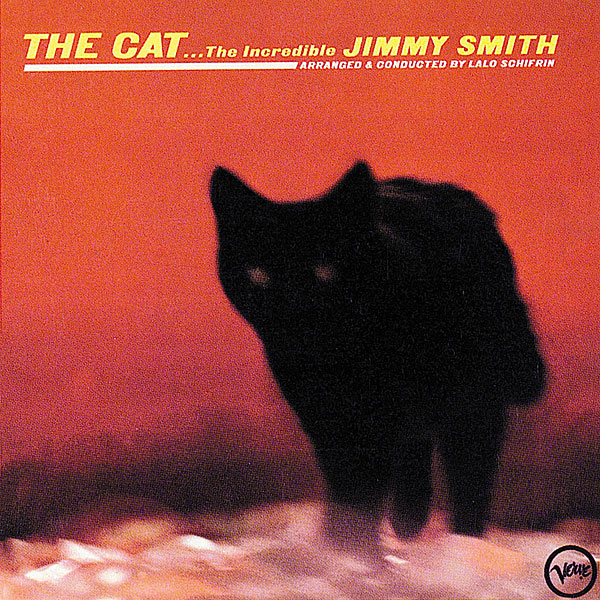
The Cat
More a vehicle for conductor/arranger Lalo Schifrin than a showcase for Hammond B-3 master Jimmy Smith, this 1964 album recalls Schifrin's great soundtracks for the film Bullitt and the television series Mannix. Like those thrillers, The Cat is served piping hot, with giant brass-shout choruses and a nimble rhythm section, plus a generous helping of concert-hall acoustics. Engineered by Rudy Van Gelder and produced by Creed Taylor, this stereo spectacular is a mite forward, but its upper frequency air is delightful.
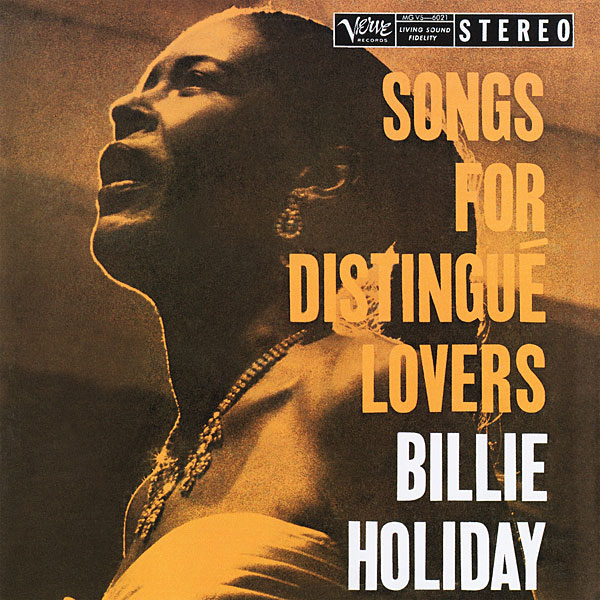
Songs for Distingué Lovers, Body and Soul
Sessions for both of these Norman Granz-produced albums took place in 1957, just two years before the singer's death—and while these recordings testify to Holiday's disintegrating health, they also show her remarkable artistry and sense of humor. With performances by Harry Edison, Ben Webster, Jimmy Rowles, Barney Kessel, Red Mitchell, and Alvin Stoller, these are sublime examples of Holiday's aging brilliance. Though taken from the same series of sessions, Songs for Distingué Lovers sounds mildly recessed, while Body and Soul is more amply fleshed out, with a larger soundstage. Both mono releases are clean, dynamic, and intimate.
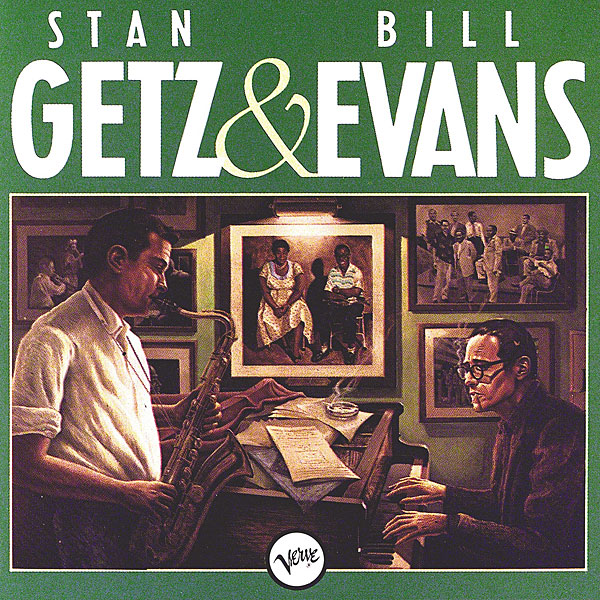
Stan Getz & Bill Evans
Recorded in 1964, this is a great set, both players blowing off steam in wonderful performances highlighted by the explosive rolling and tumbling of drummer Elvin Jones. Richard Davis and Ron Carter's basses are well recorded, though more felt than heard. Another crystal-clear disc with a big sweet spot.
The original Verve releases in my collection are meatier than the Verve Vitals, the music presented with greater ease, but they lacked the new records' upper-frequency extension, resolution, and first-row presence.
"Vinyl consumers want the purest analog sound possible," mastering engineer Kevin Reeves told me by phone. "We try not to color things very much. The original Verve tapes sound so great, there's not a lot I can take credit for. Most of what you're hearing is the sound of those glorious analog reels."

Read the story about the fire at the link:
http://www.nytimes.com/2019/06/11/magazine/universal-fire-master-recordings.html

I'm curious how a 1964 album can have music for a TV show that started in 1967 & a film from 1968?

If the original session tapes were destroyed in the 2008 fire, what is the source of the 'original sessions' material used in these particular vinyl reissues and vinyl and other format (CD, "Hi-Res", MQA) reissues and remasters of other albums?
As they're being advertised as being sourced from 'original' material, doesn't someone have some 'splainin' to do?

Kevin Reeves of Universal Mastering for this story. He works out of Nashville, I believe. This interview was conducted months ago, but Kevin would have told me if these records were taken from anything less than the original tapes. News reports have not claimed that ALL tapes were lost.

For example, according to the June 11, 2019 NY Times story:
"...The tape masters for Billie Holiday’s Decca catalog were most likely lost in total. ..."
"...Holland reported that masters for MGM and the jazz label Verve were damaged or destroyed in the fire and in the months following, when surviving recordings were kept in an open shed..."
https://www.nytimes.com/2019/06/11/magazine/universal-fire-master-recordings.html?module=inline
and given the follow-up NY Times article on June 25, 2019:
"...Many artists have commented on social media, expressing indignation in particular over UMG’s failure to inform them about the potential losses to their catalogs..."
The article concludes with a list of artists and the following comment:
"...What can be said with certainty is that these are artists whose material UMG believed had been lost in the fire and whose recordings the company spent tens of millions of dollars trying to replace..."
https://www.nytimes.com/2019/06/25/magazine/universal-music-fire-bands-list-umg.html
The very long list includes Billie Holiday.

Note that some of these titles were reissued by Analogue Productions "from the original master tapes" as recently as 2012, post-2008 fire. For instance, the Billie Holiday, Roy Haynes, Oliver Nelson and Mingus.
Come to think of it, seems like a lot of repeats with better versions available already AAA.

"The tape masters for Billie Holiday’s Decca catalog were most likely lost in total." These were originally Verve, not Decca masters. " . . .artists whose material UMG believed had been lost in the fire." "May have been lost" is not definitive, and not directly for these titles. As stated in first post, recording/mix/mastering engineers are not in the business of lying for their employers. Beyond that, I suggest you direct comments to UMG.

Ken:
The NYT article was very well researched, as was a followup article. The NYT reportage strongly suggests that UMG was in the business of obscuring the truth to the artists, the engineers, and the public. Some would call this 'lying.'
I suggest that Ken's comment is misplaced. There is no reason to believe UMG will become the angels of lucidity and publicly admit their failures: doing so opens them to legal scrutiny.
"Original masters" can be a devilish concept to clarify since all kinds of public relations obscurantism is to make things appear what they arenot in fact.
I want to suggest, that you have the perfect opportunity to dig a little bit deeper and super-clarify and super important story for the artists and the readers of this magazine.
Thanks for writing on the re-issues. It's a great story on its own.

They were the NY Times comments, not mine. I just quoted them. Re: Holiday's albums being on Verve not Decca, please see the second NY Times quote above:
"...Holland reported that masters for MGM and the jazz label Verve were damaged or destroyed in the fire and in the months following, when surviving recordings were kept in an open shed..."
https://www.nytimes.com/2019/06/11/magazine/universal-fire-master-recordings.html?module=inline
But stepping back, I think the onus is on UMG to now explain the provenance of these and other reissues and remasters in light of the NY Times story. I'm just a consumer they're trying to sell them to.

... no LPs cut from digital for me, thank you.
I'll cut right to the "master tapes" - the 24/192 digital version.
That's what the digital front end of my audio system is for.

"Vinyl consumers want the purest analog sound possible," mastering engineer Kevin Reeves told me by phone.
"So to ensure this purity of analog sound we will be cutting these LP's from digital files."
Wait.
Why wouldn't UMG give these iconic catalogs the same respect that they are finally giving the Blue Note catalog? If not similar to the Tone Poet series at least the 80th Anniversary series.

"I know there is some unfortunate confusion out there.
As UMG has said previously, the reports about what was lost in the 2008 Universal Studio fire are overstated. In this case, each of the Verve Vital records were cut from high resolution mastered files derived directly from original analog sources in the form of session tapes or the original album master, which all depends on what the artist delivered at the time. These tapes continue to be safely stored in UMG’s vaults in New York, New Jersey and Pennsylvania. I personally handled these tapes during the mastering process that I detailed in our interview, and for each one I created a hi-res digital preservation copy that mirrors the sound of the master tape. We do this so that in those situations where the tapes have started to deteriorate or become brittle, we have viable backups that ensure the original source material will remain available for generations to come, no matter how we listen to music in the future.
I hope that helps clear up some of the confusion and thank you for the opportunity to respond.
Best,
K.Reeves
UMG STUDIOS NASHVILLE
UMS STUDIOS NY/LA"

That green lights me to be able to confidently seek out titles from this series. I've purchased almost all of the BN80 & all but one of the Tone Poet titles and can see myself adding many of these Verve titles to my collection.